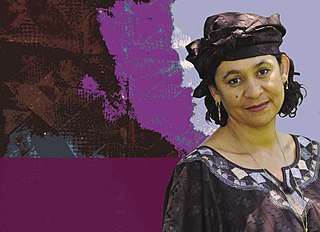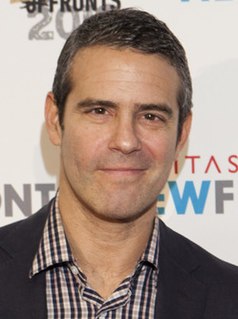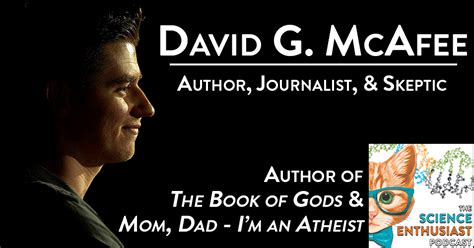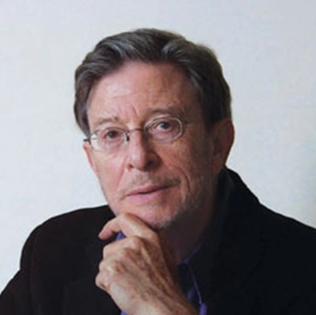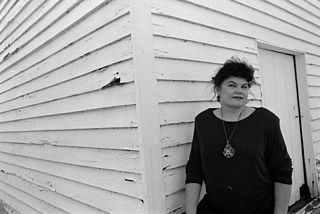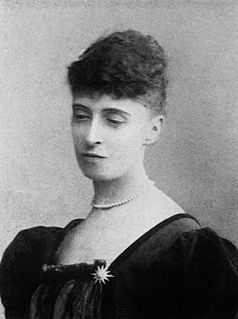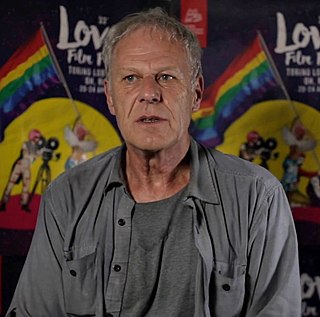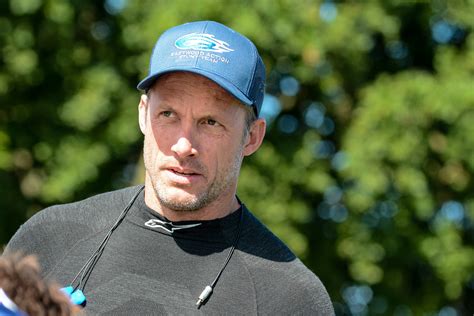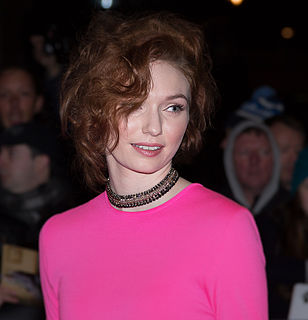Top 210 Edited Quotes & Sayings - Page 4
Explore popular Edited quotes.
Last updated on April 16, 2025.
As a young woman, Ama Ata Aidoo the freedom fighter vowed never to write love stories. Let’s delight in the fact that over the years she has changed her mind about the value of writing about love, as her rich edited collection of highly original and diverse ‘African Love Stories’ demonstrates. She has traveled her path and had the courage to grow and change while retaining her deep commitment to Pan- Africanism. Love flourishes, after all is said and done.
I think most of us, as writers, have had experiences where you get edited and it doesn't feel like your voice at all. And so it's been nice to go through the experience of having a lot wind up on the cutting-room floor, and yet still feel that your voice is being - not purified, but made more yourself. I think that's a very rare thing.
It has been jestingly said that the works of John Paul Richter are almost unintelligible to any but the Germans, and even to some of them. A worthy German, just before Richter's death, edited a complete edition of his works, in which one particular passage fairly puzzled him. Determined to have it explained at the source, he went to John Paul himself. The author's reply was very characteristic: "My good friend, when I wrote that passage, God and I knew what it meant; it is possible that God knows it still; but as for me, I have totally forgotten."
After the war in Afghanistan, Anna [Wintour, editor of Vogue], deciding to save the world one hair-roller at a time, thought the best way to help the women in this beleaguered country was to start a small beauty school in Kabul, where aid workers could get their roots done. Vanity Fair, edited by Bush-basher Graydon Carter, cheered her great humanitarian effort.
Editors can be stupid at times. They just ignore that author's intention. I always try to read unabridged editions, so much is lost with cut versions of classic literature, even movies don't make sense when they are edited too much. I love the longueurs of a book even if they seem pointless because you can get a peek into the author's mind, a glimpse of their creative soul. I mean, how would people like it if editors came along and said to an artist, 'Whoops, you left just a tad too much space around that lily pad there, lets crop that a bit, shall we?'. Monet would be ripping his hair out.
I’ve never treated anyone badly or in a discriminatory way based on their gender, race, religion or sexuality - period. I don’t blame some people for thinking that though, from the garbage they heard on those leaked tapes, which have been edited. You have to put it all in the proper context of being in an irrationally, heated discussion at the height of a breakdown, trying to get out of a really unhealthy relationship. It’s one terribly, awful moment in time, said to one person, in the span of one day and doesn’t represent what I truly believe or how I’ve treated people my entire life.
I wish I could go back and rewrite my first book, You Bright and Risen Angels; I could do a better job. But in the meantime, nobody knows as much about my books as I do. Nobody has the right but me to say which words go into my books or get deleted or edited. When I'm dying, I'll smile, knowing I stood up for my books. If I die with more money, that wouldn't bring a smile to my face. Unless I got better drugs or more delicious-looking nurses.
Jim Jones used highly-edited videos and photos of Jonestown, showing what a supposed Eden it was. People were interviewed smiling and working in the fields, telling other church members to hurry down and join them. These interviews were staged; the people were told exactly what to say. Truth is, Jonestown never even produced enough food to feed everyone, and people were going hungry.
The New Testament is an invaluable book, though I confess to having been slightly prejudiced against it in my very early days by the church and the Sabbath school, so that it seemed, before I read it, to be the yellowest book in the catalogue. Yet I early escaped from their meshes. It was hard to get the commentaries out of one's head and taste its true flavor. [...] It would be a poor story to be prejudiced against the Life of Christ because the book has been edited by Christians.
I either wrote at the end of the night or sometimes in the morning. Sometimes they were full entries, or others I just wrote notes about things that happened that day or funny thoughts I'd had. If I had a truly eventful day, I'd take the time to write it all down in great detail. I edited a lot of content out once it was all finished - there was way too much, and I didn't want to bore anyone. I like to keep the book [Superficial: More Adventures from the Andy Cohen Diaries] moving at a fast pace.
I had published a co-edited book with Oxford a decade ago, my first book actually. Years later I found myself having lunch with Lori Stone, who was an editor at Oxford at that time. We connected at a conference and over the course of lunch she told me about a wonderful new series she had just developed called Understanding Research.
Christian apologists who argue that a story about an empty tomb is convincing evidence of a resurrected body are likely unfamiliar with Occam’s razor, which states that among competing hypotheses, the hypothesis with the fewest assumptions should be selected. They assume that the most likely explanation is miraculous resurrection through some unproven divine connection, but more likely scenarios include a stolen body, a mismarked grave, a planned removal, faulty reports, creative storytelling, edited scriptures, etc. No magic required.
Better known as the Secret of the Golden Flower, this is a famous neidan text that the Western world came to know through Richard Wilhelm's 1929 translation. The Chinese text used by Wilhelm was edited by Zhanran Huizhen zi in 1921. Besides this, at least five more versions are available, all of which date to the late Qing dynasty (1644-1911) and are ascribed to Lu Dongbin, who revealed them through spirit writing.
It seems to me that on one page I recognized a portion of an old diary of mine which mysteriously disappeared shortly after my marriage, and, also, scraps of letters which, though considerably edited, sound to me vaguely familiar. In fact, Mr. Fitzgerald (I believe that is how he spells his name) seems to believe that plagiarism begins at home.
Mikhail Gorbachev's historic leadership, which transformed Russia and international relations, cannot be fully understood without the diary-memoir of Anatoly Chernyaev, one of his most important advisers and closest confidants. Splendidly translated, edited, and introduced by Robert English and Elizabeth Tucker, his Six Years with Gorbachev is now available to everyone who wants to comprehend those final momentous events of the twentieth century.
I made so many films I thought were great and they turned out horrible, and I made films I did not believe in at all, and 'Shadow Of The Vampire' was one of these films I did not believe in during the shooting. And then when I saw it I was surprised what they had made out of it. They edited for quite a long time.
Although the assembly of the shots is responsible for the structure of the film, it does not, as is generally assumed, create its rhythm; the distinct time running through the shots makes the rhythm of the picture, and the rhythm is determined not by the length of edited pieces, but by the pressure of the time that runs through them. The pieces that 'won't edit', that can't be properly joined, are those which record a radically different kind of time
I wish that I had re-edited 'Theft By Finding' after I did the audio. Because the audio took 40 hours in the studio, and I was standing on my feet. So toward the end of it I'd be looking at certain diary entries and I would think, "Is this really worth my time to read this out loud?" And I would think, "No, it is not." I would have cut out 75 pages, just because I was tired of standing up.
If it had taught them nothing else, twenty years of living past high school had taught them self-preservation. ... No one was going to risk putting his ego on the line; they would come prepared with dates, flattering clothes, and a well-rehearsed, carefully edited biography. They would all be kind to each other. High school was enough torture for one lifetime.
Red has been praised for its nobility of the color of life. But the true color of life is not red. Red is the color of violence, or of life broken open, edited, and published. Or if red is indeed the color of life, it is so only on condition that it is not seen. Once fully visible, red is the color of life violated, and in the act of betrayal and of waste.
Of course, for me Naked Lunch was the big one, but I still believe I was right to pass on that. James Grauerholz and Barry Miles did an important job with their 2003 "Restored" edition because they knew what they wanted to do, and what they could do. At the time, I simply didn't know. I hadn't even edited Junky back then. So I did the right thing to pass. Instead, what I most want to do now is complete "The Making of Naked Lunch," on which I have been working, on and off, these past 25 years.
You carry that through and adapt it to a camera lens, but you're quite right, you cannot be sure of what an audience is going to do. You don't know what's going to happen to the piece you're doing anyway. You don't know how it's going to be edited. There are a lot more unknowns in cinema. But that you have to readily accept. That's when, I think, you have to forget about intellect, to a degree. Intuition is very important when you're working with a lens, I believe, for what the lens is doing, too.
The Bible became the book of books, but it is not one document. It is a mystical library of interwoven texts by unknown authors who wrote and edited at different times with widely divergent aims. This sacred work of so many epochs and so many hands contains some facts of provable history, some stories of unprovable myth, some poetry of soaring beauty, and many passages of unintelligible, perhaps coded, perhaps simply mistranslated, mystery. Most of it is written not to recount events but to promote a higher truth—the relationship of one people and their God.
When I read Spencer Madsen’s poetry, I not only feel awe because he’s so good, one of the best, but I also think about how everything in the world is happening at the same time, and how the world we get to know is so heavily edited down. It’s the hugest, weirdest feeling. I wish Spencer Madsen could be everywhere at once. I really love You Can Make Anything Sad.
You know what it is, the reason so many 18-year-olds, 19-year-olds are saying 'Drive' is their favorite movie is that 'Drive' is a 90-minute trip into what a lot of seventies filmmaking was. It encapsulates the best of a certain kind of style, and a style that a lot of people haven't seen before, with the music and the way it's edited.
Art is the principal way in which the human mind has tried to remake the world in a way that makes sense. The carefully edited, slow-motion, action replay of a rugby tackle, a car crash or a sex act has more significance than the original event. Thanks to virtual reality, we will soon be moving into a world where a heightened super-reality will consist entirely of action replays, and reality will therefore be all the more rich and meaningful.
The worst thing that can happen is when you have gone weeks and months into elaborate sequences and the storyline of the film changes and you find out they don't need it. Sometimes you don't shoot those sequences, or they have been shot and then get edited out of the sequence you've shot gets changed and needs to be redone. That can be hard. It's not heartbreaking, but you do tend to think, "Och, all that work and effort." But that's filming, you know? You put all of these modular things into the pot, and sometimes they don't all get used.
Peeping through my keyhold I see within the range of only about 30 percent of the light that comes from the sun; the rest is infrared and some little ultraviolet, perfectly apparent to many animals, but invisible to me. A nightmare network of ganglia, charged and firing without my knowledge, cuts and splices what I see, editing it for my brain. Donald E. Carr points out that the sense impressions of one-celled animals are not edited for the brian: 'This is philosophically interesting in a rather mournful way, since it means that only the simplest animals perceive the universe as it is.
It's hard work. It's really hard work, but it's really interesting. We have this camera, I think it's called a SimulCam, and when you play it back, you can see the giant in the scene you just shot. It's incredible. You're reacting to a tennis ball that's way up there, then when you watch it, it's this huge giant's face on it. Wow. That's cool. I just can't wait to see it when it's all edited together and the special effects are all crystal clear. It's going to be, hopefully, amazing.
